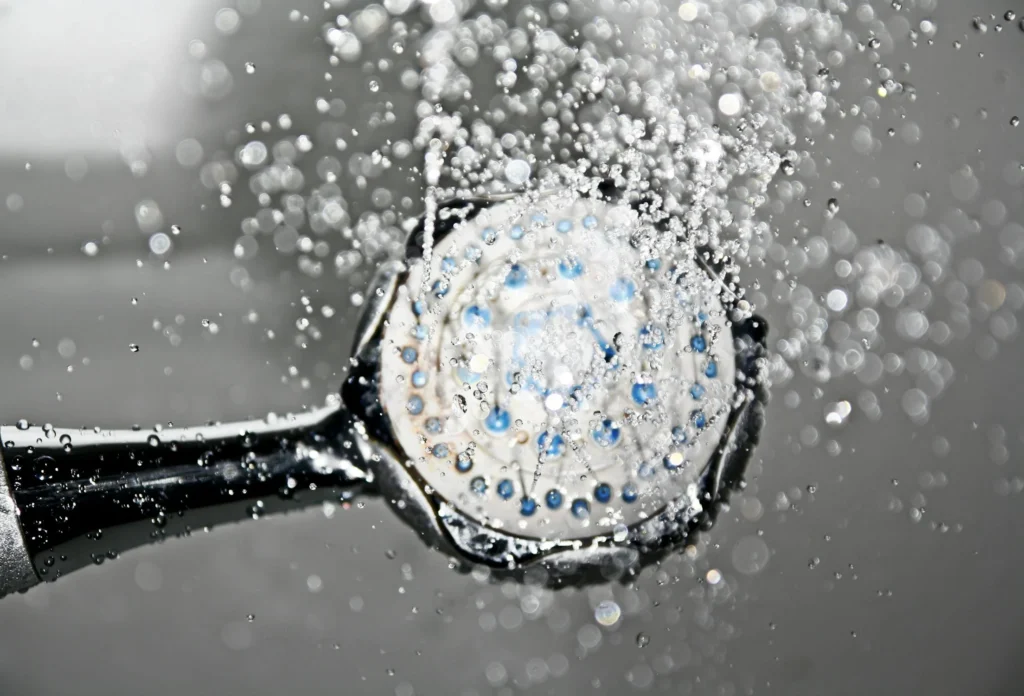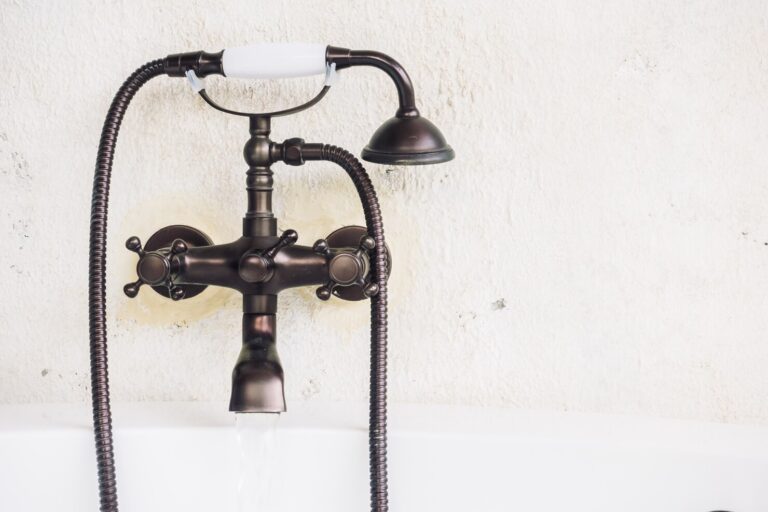Do Showers Need Hammer Arrestors: An Expert Opinion
If you’re experiencing loud banging or hammering noises when you turn off your shower, you might be wondering if you need a water hammer arrestor. Water hammer is a common problem in plumbing systems that can occur when the flow of water is suddenly stopped or changed direction, causing a shock wave to travel through the pipes. This can result in noisy pipes, damaged plumbing fixtures, and even burst pipes in extreme cases.
Understanding hammer arrestors and how they work can help you determine if you need one for your shower plumbing system. A water hammer arrestor is a device that provides an off-ramp for the water’s momentum, preventing the shock wave from traveling through the pipes and causing damage. They typically contain a piston or diaphragm that separates the water line from an air-filled chamber, which absorbs the shock wave when the water’s momentum is high enough.
In this article, we’ll take a closer look at shower plumbing systems and the installation of hammer arrestors to help you determine if you need one for your shower. We’ll also cover maintenance and troubleshooting tips to help you keep your plumbing system running smoothly. Lastly, we’ll answer some frequently asked questions about water hammer arrestors to help you make an informed decision.
Key Takeaways
- Water hammer can cause noisy pipes, damaged plumbing fixtures, and even burst pipes in extreme cases.
- A water hammer arrestor is a device that provides an off-ramp for the water’s momentum, preventing damage to your plumbing system.
- Understanding shower plumbing systems and the installation of hammer arrestors can help you determine if you need one for your shower.
Understanding Hammer Arrestors
Purpose of Hammer Arrestors
Hammer arrestors are devices that prevent water hammer, a common plumbing problem that occurs when water abruptly changes direction in a pipe. This sudden change of direction creates a shockwave that travels through the pipe, causing it to vibrate and make a loud banging noise. Over time, water hammer can damage pipes, joints, and fixtures, leading to leaks and costly repairs.
Hammer arrestors are designed to absorb the shockwave caused by water hammer, preventing damage to the plumbing system. They are typically installed at the source of the problem, such as a washing machine, dishwasher, or shower valve. Hammer arrestors are available in different types and sizes, depending on the specific application and the size of the pipe.

How Hammer Arrestors Work
Hammer arrestors work by creating a cushion of air or gas that absorbs the shockwave caused by water hammer. There are two main types of hammer arrestors: piston-type and bladder-type.
Piston-type hammer arrestors use a piston that moves within a sealed chamber filled with air or gas. When water flows through the pipe, the piston compresses the air or gas, absorbing the shockwave and preventing water hammer.
Bladder-type hammer arrestors use a bladder that separates the air or gas from the water. When water flows through the pipe, it compresses the bladder, absorbing the shockwave and preventing water hammer.
Hammer arrestors are typically installed at the end of the pipe, near the source of the problem. They are easy to install and require minimal maintenance. However, it’s important to choose the right type and size of hammer arrestor for the specific application, to ensure optimal performance and prevent damage to the plumbing system.
In summary, hammer arrestors are essential devices that prevent water hammer and protect the plumbing system from damage. They work by creating a cushion of air or gas that absorbs the shockwave caused by water hammer. When installed correctly, hammer arrestors can provide years of trouble-free service and help you avoid costly repairs.
Shower Plumbing Systems
Water Hammer Phenomenon in Showers
When you turn off the water in your shower, you may hear a loud banging noise that sounds like a hammer hitting the pipes. This is known as water hammer, and it occurs when the flow of water is suddenly stopped or changed direction. The pressure of the water causes the pipes to vibrate, which creates the banging noise.
Water hammer can be damaging to your plumbing system over time. The repeated banging can cause pipes to loosen or even break, leading to leaks and water damage. This is where a hammer arrestor comes in.
Typical Shower Plumbing Layout
A typical shower plumbing layout consists of a hot and cold water supply line that feeds into a mixing valve. The mixing valve is responsible for controlling the temperature of the water that comes out of the showerhead. After the mixing valve, the water travels through a pipe and out of the showerhead.
In some cases, a shower may have additional features such as a handheld showerhead or multiple showerheads. These features may require additional plumbing, such as diverter valves or additional supply lines.
It is important to note that not all showers require a hammer arrestor. The need for a hammer arrestor depends on the specific plumbing layout and the water pressure in your home. If you are experiencing water hammer in your shower, it may be a sign that a hammer arrestor is needed to protect your plumbing system.
Installation of Hammer Arrestors
When to Install Hammer Arrestors
If you notice a loud knocking noise in your pipes after turning off a faucet, you may need to install a hammer arrestor. Hammer arrestors are designed to prevent water hammer, a phenomenon that occurs when water is suddenly stopped or redirected in a plumbing system. Water hammer can cause damage to pipes, valves, and appliances, and can be a sign of more serious plumbing issues.
Hammer arrestors should be installed on any water supply line that is prone to water hammer. This includes supply lines to washing machines, dishwashers, and other appliances that use water. It is also a good idea to install hammer arrestors on any plumbing fixtures that are located above ground level, such as showers and sinks.
Professional Installation vs. DIY
Installing hammer arrestors can be a DIY project, but it is important to follow the manufacturer’s instructions carefully. Hammer arrestors should be installed in accordance with local plumbing codes and regulations. If you are not familiar with plumbing codes or are unsure about your ability to install a hammer arrestor properly, it is best to hire a professional plumber.
Professional plumbers have the experience and training necessary to install hammer arrestors correctly and safely. They can also help you determine which type of hammer arrestor is best for your specific plumbing system. While hiring a professional plumber may cost more than a DIY installation, it can save you money in the long run by preventing costly plumbing repairs.
In summary, installing hammer arrestors can help prevent water hammer and protect your plumbing system from damage. Whether you choose to install a hammer arrestor yourself or hire a professional plumber, it is important to follow the manufacturer’s instructions and local plumbing codes.
Maintenance and Troubleshooting
Regular Maintenance Tips
To ensure that your shower’s hammer arrestor works properly, you should perform regular maintenance. One of the most important things you can do is to check the water pressure in your home. High water pressure can cause water hammer, which can damage your pipes and your shower valve. You can use a water pressure gauge to check the water pressure in your home. If the pressure is too high, you can install a pressure reducing valve to reduce the pressure.
Another important maintenance tip is to check for leaks. If you notice any leaks, you should have them repaired as soon as possible. Leaks can cause water hammer, which can damage your pipes and your shower valve.
Identifying Common Issues
If you are experiencing water hammer in your shower, there are a few things you can do to troubleshoot the problem. First, check the water pressure in your home. If the pressure is too high, you can install a pressure reducing valve to reduce the pressure.
Another common issue is a faulty shower valve. If your shower valve is not working properly, it can cause water hammer. You may need to replace the valve to fix the problem.
Finally, if you have tried these troubleshooting tips and are still experiencing water hammer in your shower, you should contact a licensed plumber. A plumber can help you diagnose the problem and recommend the best solution.
Frequently Asked Questions
Are water hammer arrestors required by plumbing codes for shower installations?
Water hammer arrestors are not always required by plumbing codes for shower installations. However, it is highly recommended to install them to prevent damage to pipes and fixtures, as well as to reduce noise and vibration.
How do you determine the number of water hammer arrestors needed for a shower system?
The number of water hammer arrestors needed for a shower system depends on the number of fixtures and the length of the plumbing run. As a general rule, one arrestor should be installed for every two to three fixtures. Consult with a licensed plumber to determine the appropriate number and placement of water hammer arrestors for your specific shower system.
What is the recommended placement for water hammer arrestors in shower plumbing?
Water hammer arrestors should be installed as close as possible to the source of the water hammer, which is usually the valve that controls the flow of water. The arrestor should be installed on the hot and cold water supply lines, preferably near the valve. Consult with a licensed plumber to determine the best placement for water hammer arrestors in your shower plumbing.
Is the installation of water hammer arrestors mandatory when using PEX piping for showers?
The installation of water hammer arrestors is not mandatory when using PEX piping for showers. However, it is still recommended to install them to prevent damage to pipes and fixtures, as well as to reduce noise and vibration.
What specific plumbing fixtures in a bathroom should be equipped with hammer arrestors?
Plumbing fixtures that can cause water hammer include toilets, sinks, showers, and washing machines. Therefore, it is recommended to install water hammer arrestors on all of these fixtures to prevent damage to pipes and fixtures, as well as to reduce noise and vibration.
Can the absence of a water hammer arrestor affect other appliances, such as washing machines or dishwashers?
Yes, the absence of a water hammer arrestor can affect other appliances, such as washing machines or dishwashers. Water hammer can cause damage to pipes and fixtures, and can also cause noise and vibration throughout the plumbing system. Therefore, it is recommended to install water hammer arrestors on all plumbing fixtures to prevent these issues.





